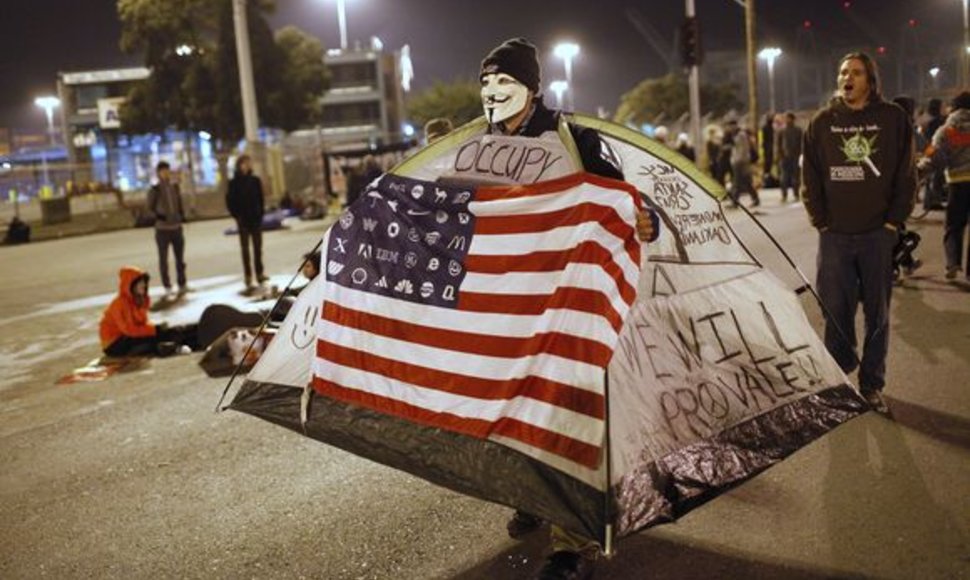- Professor Fukuyama, you are best known for your essay "The End of History," in which you declared that, after the demise of the Soviet Union, liberal democracy had emerged as the triumphant global model. Now, your latest research claims that the flaws of capitalism and globalization could endanger this democratic model. How do you explain this shift?
- Capitalism is the wrong word to use here, because there is not a viable alternative to capitalism. What we are really talking about is just economic growth and the development of modern economic societies. A combination of factors is beginning to challenge their progress in the United States. We have had a lot of technological change that substituted for low-skill labor and made many people in Western democracies lose their jobs.
- Which is why countries such as the United States or Britain wanted to turn themselves into "service-oriented" economies.
- We have unthinkingly embraced a certain version of globalization that assumed we had to move very quickly into this post-industrial, post-manufacturing world. Doing so, we forgot that the whole reason real socialism never took off in the US was the fact that the modern economy seemed to produce middle-class societies in which the bulk of the population could enjoy a middle-class status. They worked in industries that were abolished in our countries and transferred to countries like China.
- Even if members of the middle class held on to their jobs, they saw their income stagnate or even decline, while a few of globalization's winners at the top reaped outsize rewards. The level of income inequality in advanced nations is greater than ever before. What effect does that have on our societies?
- It is not good for democracy. If income is relatively evenly distributed and there are not very sharp differences between rich and poor, you have a greater sense of community. You have a greater sense of trust. You do not have parts of the community that have superior access to the political system that they can use to advance their own interests ...
- … all of which undermines the democratic process.
- What you are going to see in a democracy with a weaker middle class is much more populism, more internal conflict, an inability to resolve distributional issues in an orderly way. In the United States right now, you do have this return of populism. It should be on the left, but actually most of it is on the right. If you talk to Tea Party members about their feelings regarding the government, they are very passionate. They hate the government. They think they have been betrayed by elites.
- Americans, however, are beginning to discuss the problem of social inequality much more openly.
- They are slowly beginning to realize it. The recent public focus on inequality and the Occupy Wall Street movement are harbingers of change in that direction. The trouble is that in the United States it is extremely difficult to mobilize people around pure class issues. President Barack Obama was ostracized as a "European socialist" when he brought up the idea of higher taxes on the rich. These class debates are historically unpopular -- except for a very brief period in the 1930s during the Great Depression.
- The latest financial crisis was often compared to the Great Depression: Why did we not see another case of the left wing rising up against the rich?
- I am at a loss, too. Where is this uprising from the left? This is a crisis that began on Wall Street. It really was rooted in the particular American model of liberalized finance. It hurt ordinary people tremendously, and it benefited the richest part of the country -- the finance sector -- which came through the crisis very well, thanks to government bailouts. You would have thought that this would pave the way for a rise of left-wing populism as seen in the 1930s. A Tea Party on the left, so to speak.
- Could the Occupy Wall Street movement fill this void on the left?
- I really do not take this movement seriously, because its social base is extremely narrow. It consists mostly of the same kids that were protesting in 1999 in Seattle against the World Trade Organization -- anti-capitalists. The big problem sociologically for the left in the United States is that the white working class and lower middle class, that in Europe would be reliably social democratic in their political behavior, tends to vote Republican or is easily brought into the Republican camp. Until the Occupy Wall Street people can connect up with that demographic group, there is not going to be a big left-wing populist base of support in the US.
- Has the crisis simply not been deep enough to achieve that?
- Ironically, because the Federal Reserve and the US Treasury acted to support the financial sector, the crisis did not develop into a deep depression with unemployment up to 20 percent like in the 1930s. Back then, President Franklin D. Roosevelt could restructure the big banks. I believe that the only solution to our current problems is to restructure all these big banks, Goldman Sachs and Citigroup and Bank of America, and turn them into smaller entities that could then be allowed to go bankrupt. They would no longer be "too big to fail." But this has not happened so far.
Continue reading on spiegel.de












